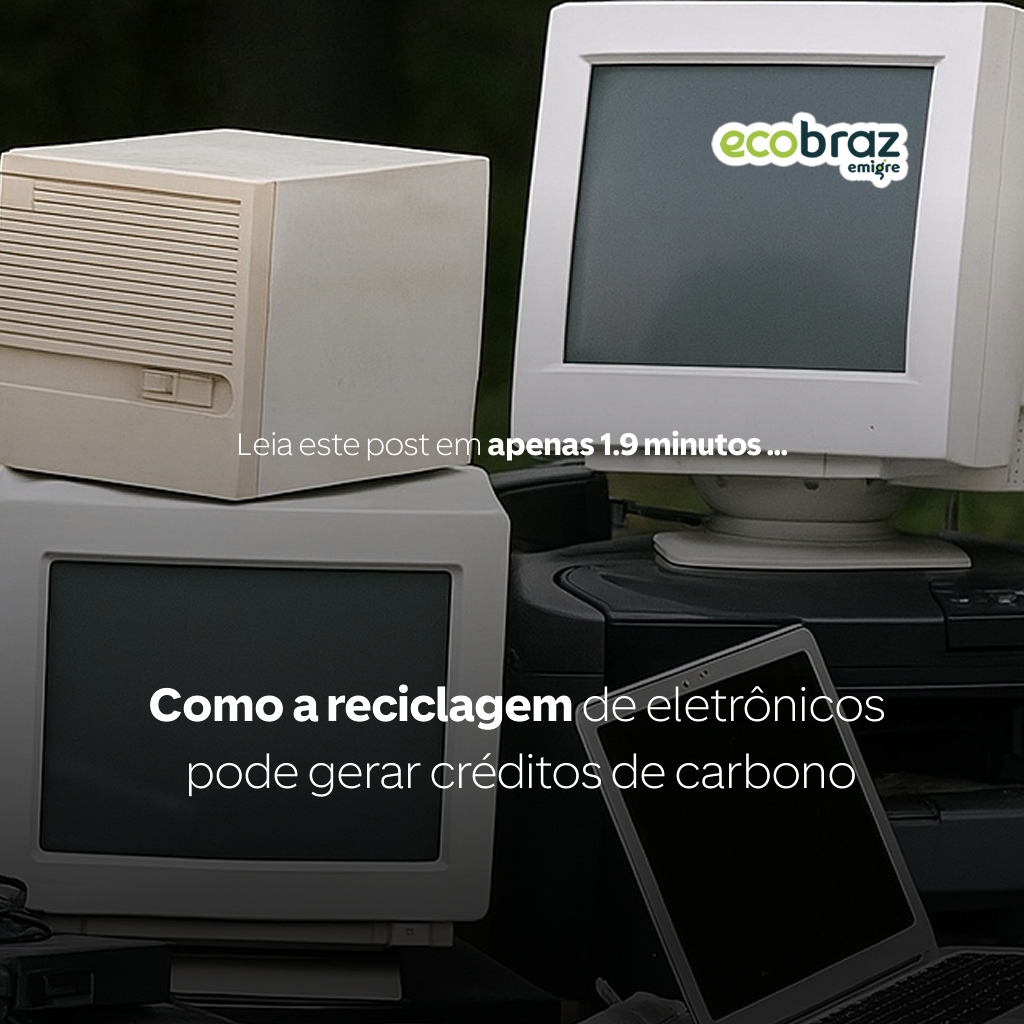Blog Ecobraz Eigre

How Electronics Recycling Can Generate Carbon Credits
Introduction: The challenge of CO₂ emissions
Global warming is driven by greenhouse gas emissions, with the industrial sector being one of the main contributors. Companies of all sizes are under increasing pressure to reduce their direct and indirect emissions, and carbon credits have emerged as a tool to offset this impact.
Electronics recycling is one of the practices that most effectively contributes to this process.
How recycling generates carbon credits
Electronics recycling generates carbon credits because:
-
It avoids raw material extraction → mining consumes vast amounts of energy and releases CO₂.
-
It reduces industrial energy consumption → recycled materials require far less energy than virgin raw materials.
-
It decreases international transport emissions → by reusing materials locally.
-
It prevents landfill emissions → where electronic waste could release toxic gases.
Each ton of recycled material can be measured as a reduction in emissions, generating certified carbon credits.
Benefits for companies
Companies that adopt electronics recycling as part of their environmental strategy gain:
-
Reduced carbon footprint in operations.
-
Access to certified carbon credits to offset unavoidable emissions.
-
Strengthened ESG reporting with measurable environmental metrics.
-
Brand value growth among consumers and investors.
-
Competitive advantage in contracts and tenders requiring environmental compliance.
The role of Ecobraz Emigre
Ecobraz Emigre is a pioneer in connecting electronics recycling with carbon credit generation:
-
World’s largest NGO in electronics recycling.
-
Methodologies aligned with international certification standards.
-
Technical documentation and reports to prove emission reductions.
-
Partnerships with multinational companies that must meet global sustainability targets.
-
Additional social impact → digital inclusion and job creation.
Challenges and opportunities in Brazil
While Brazil’s carbon market is still developing, the country has enormous potential:
-
Abundance of electronic waste → more than 2 million tons annually.
-
Regulatory advances with the new Carbon Market Framework.
-
Rising demand from multinational companies for local environmental credits.
-
Potential for regional leadership in certified recycling.
Conclusion: Recycling as a climate solution
Electronics recycling is one of the most effective tools to turn environmental liabilities into sustainability assets.
👉 With Ecobraz Emigre, companies can not only dispose of their equipment responsibly but also generate carbon credits, strengthening their climate strategy and ensuring a positive impact on the planet.

Deixe um comentário
O seu endereço de e-mail não será publicado. Campos obrigatórios são marcados com *